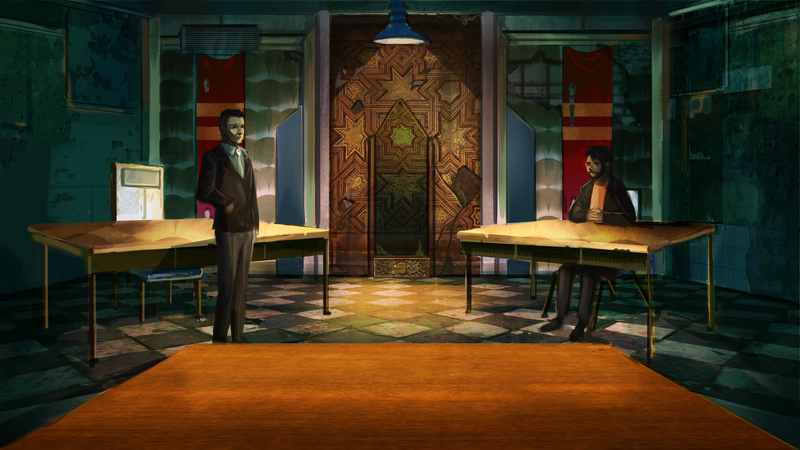Unity5 interactive narrative designed to
explore the malleability of language.
Project Overview
Please Rise, Winston is a Unity 5 text-based game built in the senior game design program during my time at UCSC. It was designed to question and explore the interactive narrative genre and the malleability of language. I was brought on board a team of four at the beginning of the project, and being the only member of the four-man team with a background using the Unity engine, I quickly adapted a mentor role, giving myself the task of bringing the rest of the team up to speed. We had about six months to complete this relatively ambitious project that wanted to convince players to consider and play with the deeper connotations of everyday language.
Alongside mentoring my colleagues, I designed the word swapping and selection system, built the page array to handle thousands of game objects efficiently, tweened all of the animations and cutscenes, selected art and font styles for the team to pick from, and set up each individual act's scoring system.
See the trailer for Please Rise, Winston below!
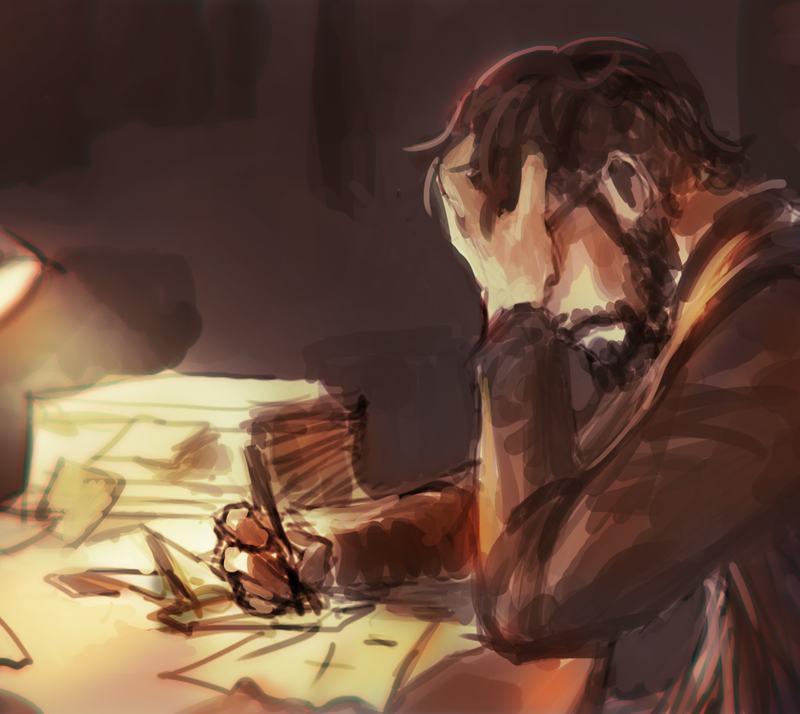
Conceptualizing the Experience
Our team was small and fledgling, compared to other twenty-man game projects our classmates were working on. Our team lead was Chase Allbee. Chase endeavoured, at the behest of our instructor, to think outside of the box, and this was his answer. Chase did not want to build another side scrolling platformer or first-person shooter. Instead, he pitched the idea of an interactive narrative story set in a future dystopian cityscape in a science fiction world. He wanted to isolate how words and their connotations transfer from language to language and made this the cornerstone of the pitch. In his words, "We wanted to highlight the power language can have when moving from one mind to another and how that might be used for those in power and those without it." I couldn't have put it better myself.
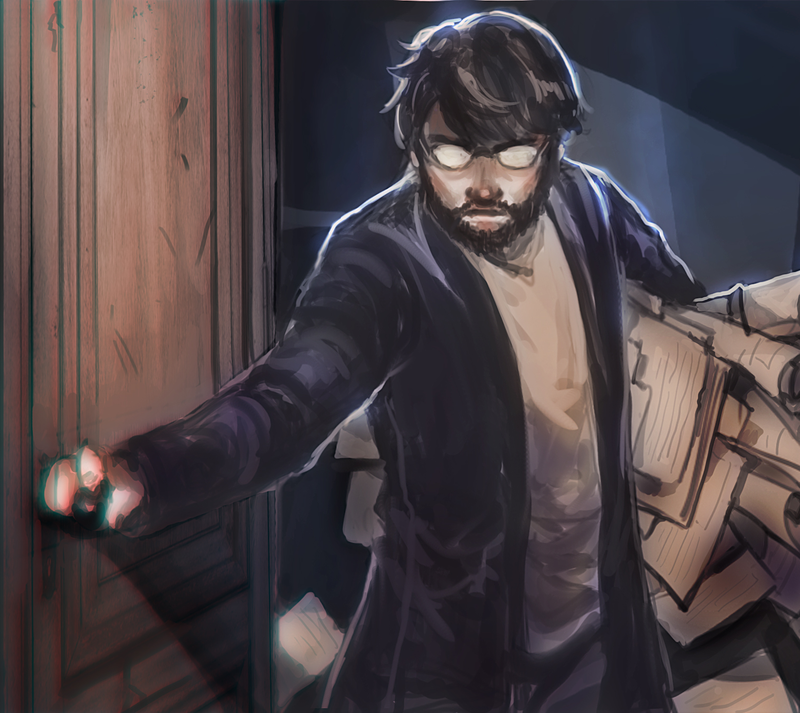
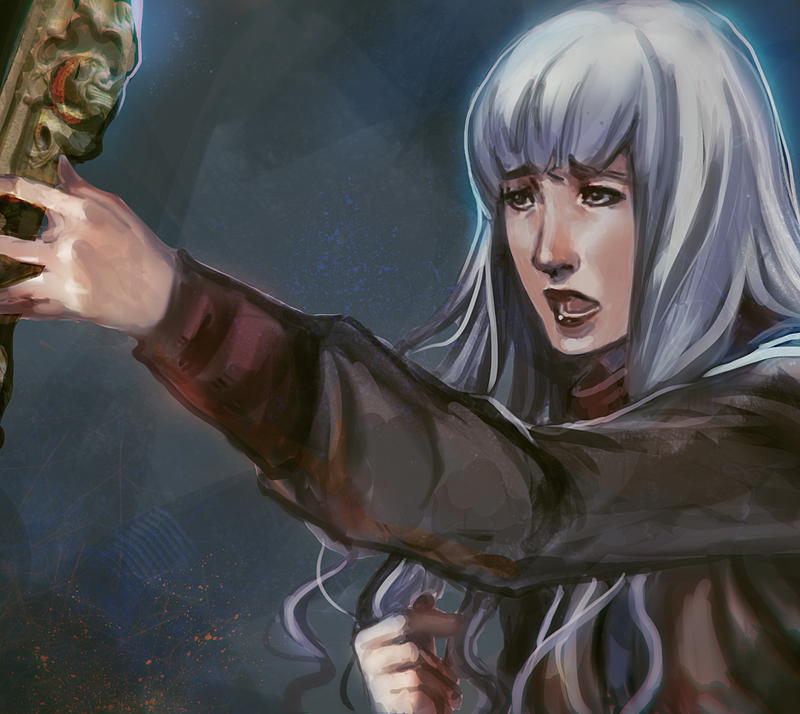
Design and Development
In order to emulate the original concept, we set about laying out the groundwork for the game, asking ourselves how to immerse the player in the world we wished to create. As the lead programmer on this project, I communicated with the other two programmers on the team and illustrated how to set up scenes within Unity, build abstract classes, build tools for Chase to implement his narrative, tween 2D sprites using an external library, and set up our hierarchy of prefabs, canvases, text fields, et cetera. We also set up a SCRUM system to manage our workflow, prioritizing what bugs or features we needed to address per sprint.
Figuring out our storytelling mechanic was not simple. The then-new Telltale's Tales from the Borderlands series was a great model and influence for us. We looked to Zork and other material and tools such as Inform7 and Twine to figure out how narrative can be sewn together in coherent pieces to be played through. We settled on a system much akin to Telltale's structure, scoring choices the player makes and providing multiple endings tailored to the player's actions and decisions throughout their playthrough. With one Francisco Perez's insight on the world of parsing, we were able to create a tool for Chase to load his story into the game through .txt files and a bit of syntax on his part to demarcate places where words could be translated differently.
As the lead user tester, I set up playtest dates during our alpha and beta stages during our final two months of development, isolating some pain points for the users, held meetings at night to review potential changes to our scrum board, and implemented these changes accordingly. Some of the more considerable challenges I personally had to deal with were rendering and layering priority issues. These problems urged me to reach out to the TAs and graduates of the program for help, and I learned a great deal from them.
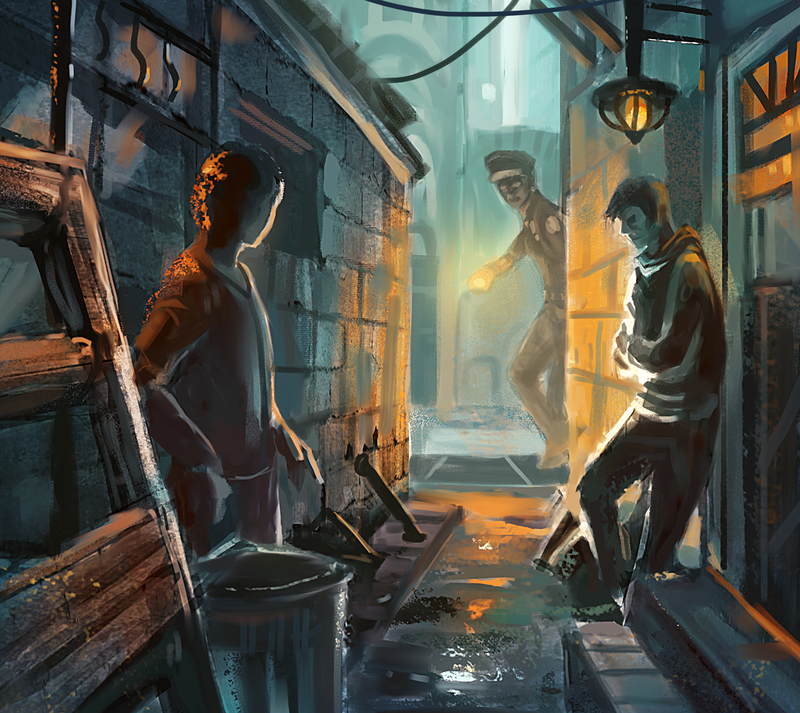
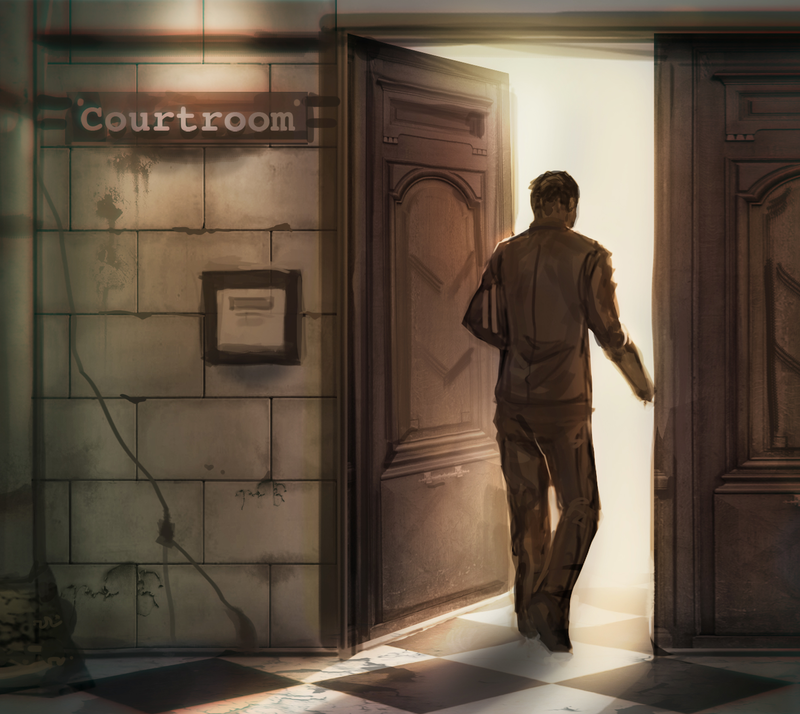
The Finished Product
At last, the Sammy Awards came around, an end-of-year gathering to merit all the hard work that went into the projects in the class. Fourteen teams vied for their shot at any of the eight or so awards to be given that night. The fruits of our labor for the past two quarters were finally judged by a panel comprised of individuals who were either part of the game industry or closely connected to it. We were just as eager as any of the other teams participating to see our work validated and applauded.
The judges came around with mixed opinions of the game; some greatly enjoyed the way we deviated from traditional storytelling, tying our choices to words and their connotations rather than actions on behalf of in-game characters. Others commented on the lack of action on the player's part, with one playtester comparing our game to a worse version of Facebook, faulting the reading and clicking core mechanics. For the most part, that was what we expected from the game; our target audience was not a huge swathe of people, but rather a select few who wanted a slower, more novel experience. Both kinds of feedback were important to the completion of the project.
To our surprise, Please Rise, Winston was nominated for an award. We didn't win the award, but it was mind blowing to have come this far and have some semblance of acknowledgement. It felt invigorating and refreshing at the same time. It wasn't the greatest victory we could have hoped for, but it was still a success as a project. All things considered, the team was largely satisfied and we left UCSC with a new set of tools in our belts.
